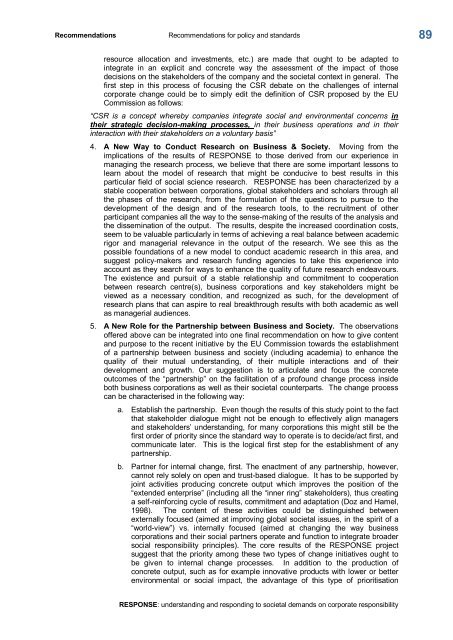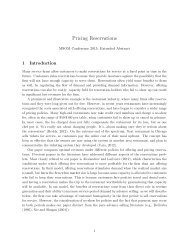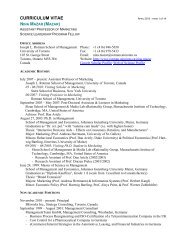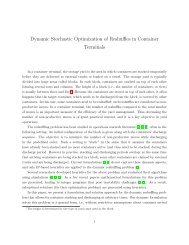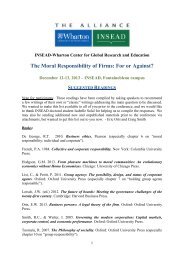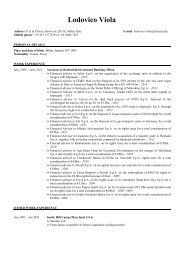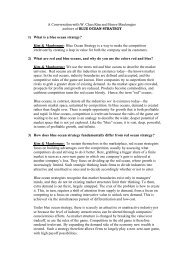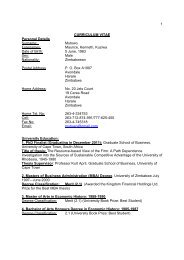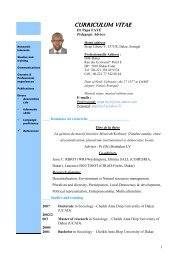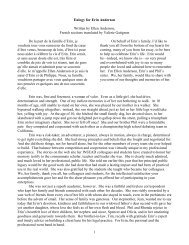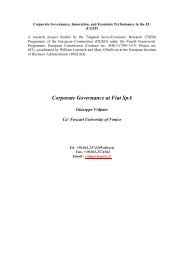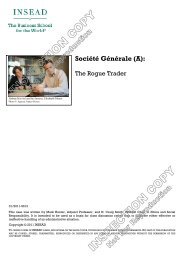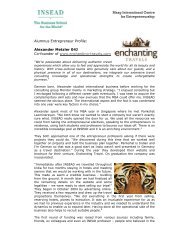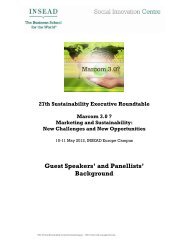RESPONSE - Insead
RESPONSE - Insead
RESPONSE - Insead
You also want an ePaper? Increase the reach of your titles
YUMPU automatically turns print PDFs into web optimized ePapers that Google loves.
Recommendations Recommendations for policy and standards<br />
resource allocation and investments, etc.) are made that ought to be adapted to<br />
integrate in an explicit and concrete way the assessment of the impact of those<br />
decisions on the stakeholders of the company and the societal context in general. The<br />
first step in this process of focusing the CSR debate on the challenges of internal<br />
corporate change could be to simply edit the definition of CSR proposed by the EU<br />
Commission as follows:<br />
“CSR is a concept whereby companies integrate social and environmental concerns in<br />
their strategic decisionmaking processes, in their business operations and in their<br />
interaction with their stakeholders on a voluntary basis”<br />
4. A New Way to Conduct Research on Business & Society. Moving from the<br />
implications of the results of <strong>RESPONSE</strong> to those derived from our experience in<br />
managing the research process, we believe that there are some important lessons to<br />
learn about the model of research that might be conducive to best results in this<br />
particular field of social science research. <strong>RESPONSE</strong> has been characterized by a<br />
stable cooperation between corporations, global stakeholders and scholars through all<br />
the phases of the research, from the formulation of the questions to pursue to the<br />
development of the design and of the research tools, to the recruitment of other<br />
participant companies all the way to the sensemaking of the results of the analysis and<br />
the dissemination of the output. The results, despite the increased coordination costs,<br />
seem to be valuable particularly in terms of achieving a real balance between academic<br />
rigor and managerial relevance in the output of the research. We see this as the<br />
possible foundations of a new model to conduct academic research in this area, and<br />
suggest policymakers and research funding agencies to take this experience into<br />
account as they search for ways to enhance the quality of future research endeavours.<br />
The existence and pursuit of a stable relationship and commitment to cooperation<br />
between research centre(s), business corporations and key stakeholders might be<br />
viewed as a necessary condition, and recognized as such, for the development of<br />
research plans that can aspire to real breakthrough results with both academic as well<br />
as managerial audiences.<br />
5. A New Role for the Partnership between Business and Society. The observations<br />
offered above can be integrated into one final recommendation on how to give content<br />
and purpose to the recent initiative by the EU Commission towards the establishment<br />
of a partnership between business and society (including academia) to enhance the<br />
quality of their mutual understanding, of their multiple interactions and of their<br />
development and growth. Our suggestion is to articulate and focus the concrete<br />
outcomes of the “partnership” on the facilitation of a profound change process inside<br />
both business corporations as well as their societal counterparts. The change process<br />
can be characterised in the following way:<br />
a. Establish the partnership. Even though the results of this study point to the fact<br />
that stakeholder dialogue might not be enough to effectively align managers<br />
and stakeholders’ understanding, for many corporations this might still be the<br />
first order of priority since the standard way to operate is to decide/act first, and<br />
communicate later. This is the logical first step for the establishment of any<br />
partnership.<br />
b. Partner for internal change, first. The enactment of any partnership, however,<br />
cannot rely solely on open and trustbased dialogue. It has to be supported by<br />
joint activities producing concrete output which improves the position of the<br />
“extended enterprise” (including all the “inner ring” stakeholders), thus creating<br />
a selfreinforcing cycle of results, commitment and adaptation (Doz and Hamel,<br />
1998). The content of these activities could be distinguished between<br />
externally focused (aimed at improving global societal issues, in the spirit of a<br />
“worldview”) vs. internally focused (aimed at changing the way business<br />
corporations and their social partners operate and function to integrate broader<br />
social responsibility principles). The core results of the <strong>RESPONSE</strong> project<br />
suggest that the priority among these two types of change initiatives ought to<br />
be given to internal change processes. In addition to the production of<br />
concrete output, such as for example innovative products with lower or better<br />
environmental or social impact, the advantage of this type of prioritisation<br />
<strong>RESPONSE</strong>: understanding and responding to societal demands on corporate responsibility<br />
89


